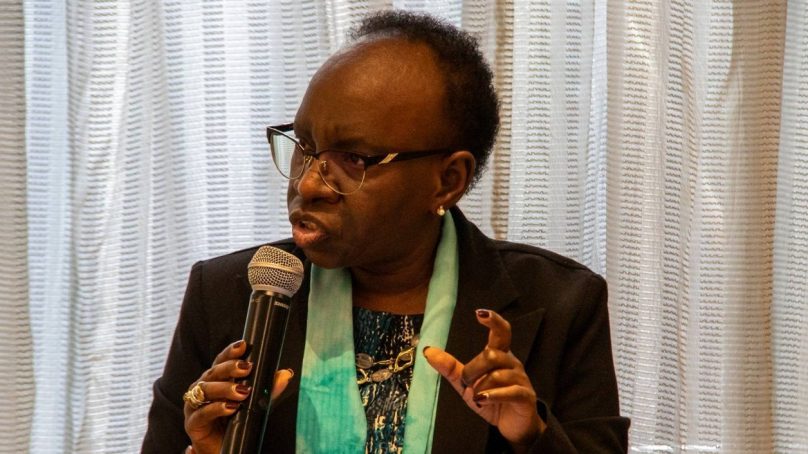
Kenya’s Auditor General Nancy Gathungu has raised the red flag over Elgeyo Marakwet Equity Development Act (EDA) 2015, saying some of its provisions contradict various national laws governing public finance, procurement and governance.
In her 2023/2024 audit report, Gathungu noted that sections of the Act were inconsistent with the Public Finance Management (PFM) Act, the Public Procurement and Asset Disposal Act (PPDA), and the Constitution.
She pointed out that under Section 17 of the EDA, members of the county assembly (MCAs) sit as members of ward development committees in their respective wards. Section 19 of the Act grants these committees powers that include awarding tenders for ward-based contracts, monitoring and evaluating projects, and ensuring compliance with contract terms.
According to the auditor general, these provisions contravene the County Government Act 2012, which prohibits MCAs from engaging directly or indirectly in executive functions of the county government or in the administration and delivery of services.
“The integrity, oversight and separation of powers between the county executive and the county assembly could not be confirmed,” Gathungu stated.
The auditor general also faulted the county for flouting procurement laws by awarding contracts worth Kshh16 million despite inadequate funds to complete the projects.
“This was contrary to Section 53(8) of the PPDA, 2015, which states that accounting officers shall not commence any procurement proceedings until satisfied that sufficient funds are available in the approved budget estimates to meet the obligations of the resulting contract,” she explained.
Additionally, she criticised the county for using Ksh20 million of development funds to pay allowances to members of ward development and project management committees, as allowed under the EDA. She termed this an infringement of Article 191 of the Constitution, which gives precedence to national legislation in cases of conflict with county laws in matters of concurrent jurisdiction.
The EDA Act, passed in 2015, was intended to promote equitable distribution of resources across Elgeyo Marakwet’s 20 wards. The law mandates that 60 per cent of the development budget be shared equally among the wards, while the remaining 40 per cent is distributed equitably based on need.
However, the Act has been a subject of debate. Sambirir MCA Paul Suter defended it, arguing that MCAs are not members but patrons of the ward funds, similar to how members of parliament act as patrons of the National Government Constituency Development Fund (NG-CDF).
Suter said each of the 20 wards sets aside Ksh1 million from their allocations to pay stipends to ward and project management committees. He maintained that these committees play a critical role in monitoring project implementation, noting that professionals alone cannot effectively supervise the many projects being undertaken.
“This system enhances community ownership of development projects and ensures accountability at the grassroots,” he added.
Suter further accused the county executive of failing to allocate sufficient funds to complete identified projects, saying that once residents prioritise a project, the relevant departments should commit resources to its full implementation.
Nonetheless, the Act has faced criticism from other leaders. Senator William Kisang said dispersing resources across too many projects dilutes the impact, leading to numerous incomplete initiatives that do not significantly improve residents’ lives.
Bishop Harun Kwambai, chair of the County Clergy Association, also raised concerns about equal allocation to wards, arguing that it disadvantages Kapchemutwa Ward, which hosts Iten Town, the county headquarters. He said the headquarters requires more resources due to its role as the administrative and revenue-generating hub.
“The equal allocation formula has slowed the pace of development in Iten, despite its central role in county operations,” the bishop noted.
Governor Wisley Rotich has similarly expressed misgivings, arguing that channelling the entire development budget to wards leaves nothing for flagship county-wide projects. He said this undermines the county’s ability to undertake transformative initiatives that could benefit the broader population.
The debate over the EDA highlights the broader struggle between equitable resource distribution at the grassroots and the need to fund strategic county projects, as questions linger over the law’s alignment with national governance frameworks.
- A Tell Media / KNA report / By Alice Wanjiru








